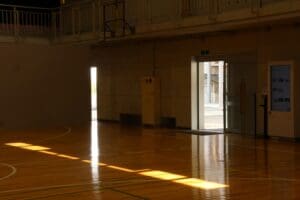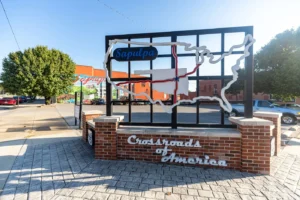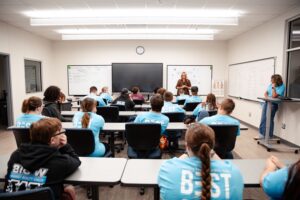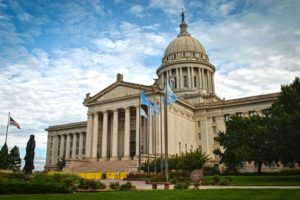Aaron McColloch
Sapulpa Public Schools
(SPS) — Sapulpa High School students heard from retired Marine Corps Capt. Randy Norfleet on Friday about his story of survival and recovery following the explosion that ripped through the Alfred P. Murrah Federal Building in Oklahoma City more than 25 years ago.
Capt. Norfleet spoke just four days after the 26th anniversary of the bombing that killed 168 and injured nearly 700 more.
He recalled that fateful morning on April 19, 1995 and how he arrived at the Murrah Building. At the time, Norfleet worked in Stillwater running the Marine Corps Officer program for Oklahoma and Kansas. He was in Oklahoma City that morning for a pancake breakfast and to meet with his supervisor, whose office was on the 6th floor of the Murrah Building.
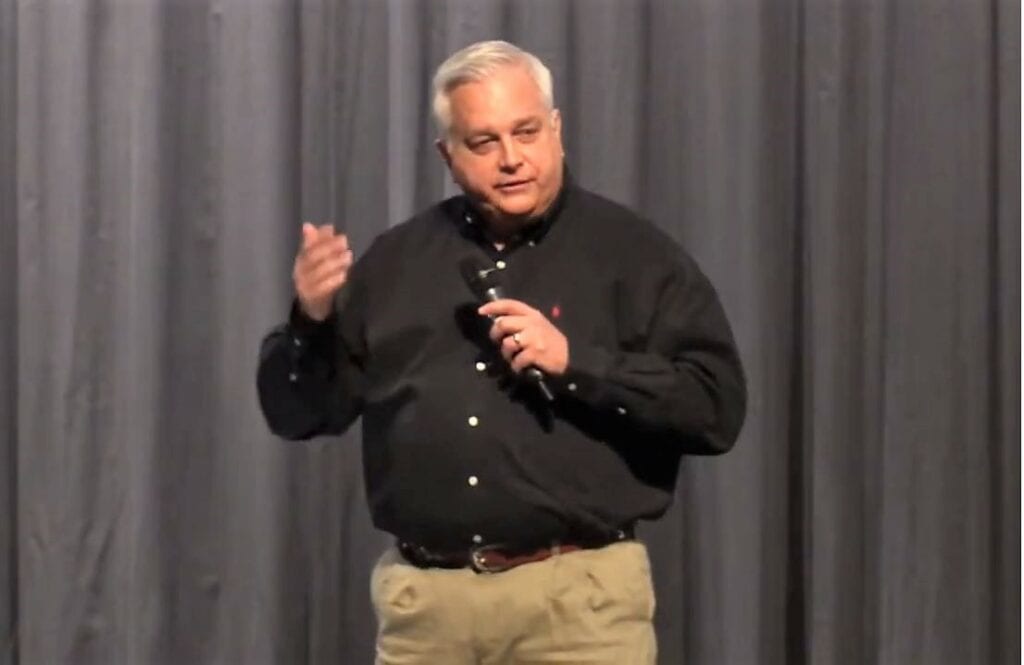
As Norfleet approached the building he said he saw the yellow Ryder van parked right outside. He was in his Ford Ranger pickup at a stop sign when he noticed the van because of where it was parked.
“I thought that was unusual because it’s a loading zone.” He then witnessed a young man get out of the cab and run across the street away from the van.
“It was Timothy McVeigh. He was running away to his getaway car.”
Norfleet said he parked his truck and entered the Murrah Building “a little before 9 o’clock.” Just moments before the Ryder van exploded.
It was on the 6th floor when Norfleet’s life changed. At 9:02 a.m. the 5,000 pound fertilizer bomb hidden in the Ryder van exploded and tore a massive hole in the side of the building. The blast shattered windows and glass lodged in Norfleet’s right eye.
“I took shrapnel all down my left arm,” as a reaction to the blast by lifting the arm to cover his face. Soon, the floors collapsed. He was thrown into the west wall of the building, face first, and suffered a fractured skull. Norfleet was left unconscious.
He came to and he said he realized if he stayed in the building he would have bled out and died. With the aid of his years of military training and his survival instincts, Norfleet said he found a blood trail and followed it to the back of the building to an intact stairwell. With only the vision in one eye, and bleeding profusely he said, he climbed down six flights of stairs where an ambulance was waiting. His blood pressure was measured at 50 over 0 at the hospital.
“If I had stayed in that building another five minutes, I wouldn’t be here today.”
Norfleet said the events of April 19, 1995 are comparable to what society is going through today.
“We live in a cancel culture that if we don’t think somebody believes what we believe, we can just turn them off.”
He said McVeigh didn’t believe in the government and he allowed his anger to turn into hate which led to violence in the form of a bomb.
“How do we stop the hate from turning into violence?,” he asked rhetorically.
Norfleet instructed the students to practice three virtues – being grateful, exhibiting grace, and forgiveness.
“You need to take the time to be grateful for the people that love you,” he said. “Be grateful not only when it’s easy but also when everything is against you,” he said. “That is the basis for living a successful life.”
Norfleet said to have grace by remaining calm and controlled. “To become a leader, you must be gracious to those around you.”
During McVeigh’s trial, Norfleet was the second witness to take the stand. “I was able to place McVeigh at the scene.”
He said he looked into McVeigh’s “dark eyes” during the trial and was able to forgive him. “Forgiveness means to decouple your anger from the action. He didn’t know that I forgave him. I forgave him because it was good for me. I let go of my angry feelings.”
Norfleet told the students to forgive is not a sign of weakness. He said forgiving someone doesn’t mean that person is not going to face consequences for his or her actions.
McVeigh faced his consequences six years after the bombing when he was executed by lethal injection. An execution for which Norfleet was grateful to be alive and witness in person.
“I would have been the 169th victim of the Oklahoma City bombing, if I hadn’t forgiven him.”
Capt. Norfleet was invited to speak to the students as a guest of Sapulpa High School MCJROTC Senior Instructor LtCol (Ret) Bill Shannon.


